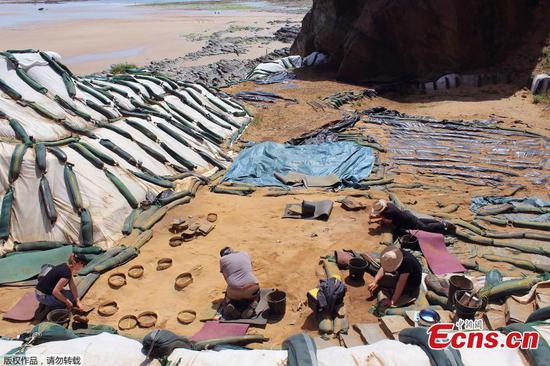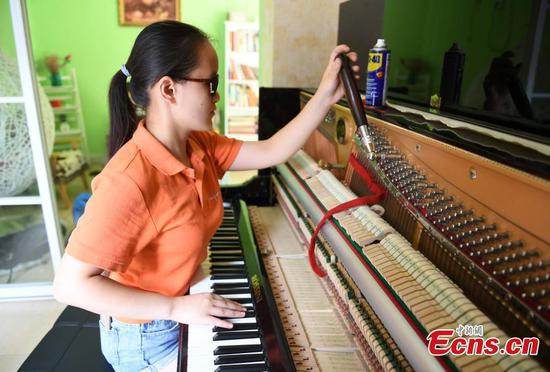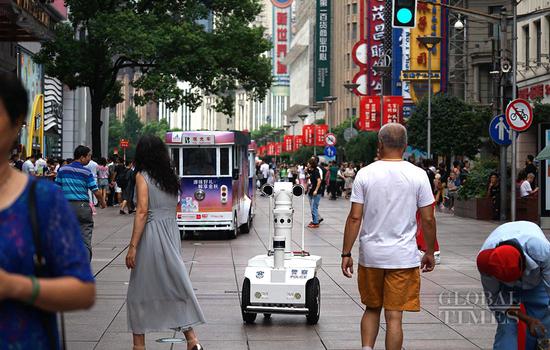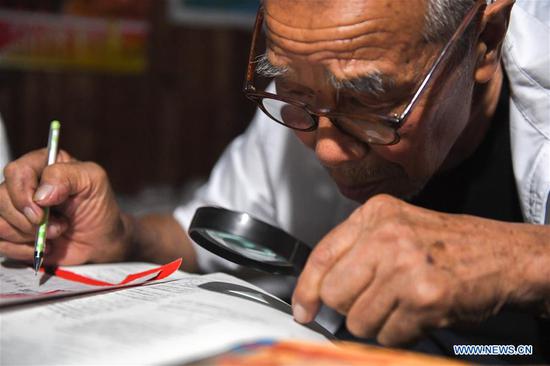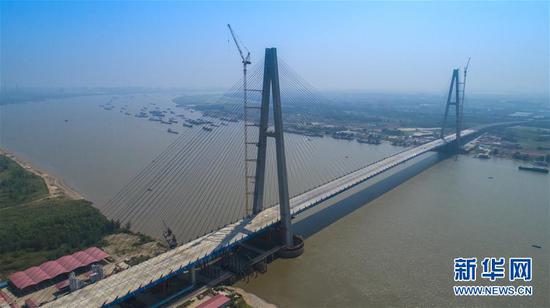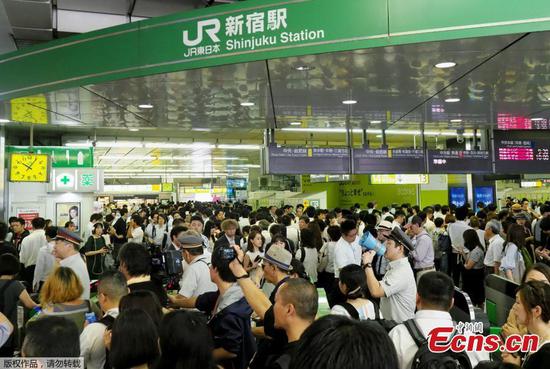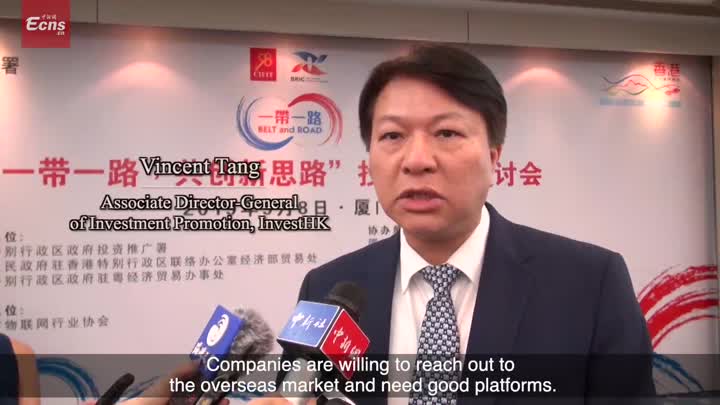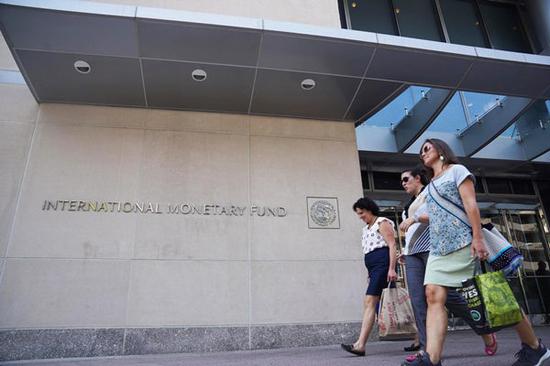
People walk past the headquarters of the International Monetary Fund (IMF) in Washington D.C., the United States, on Aug. 9, 2019. (Xinhua/Liu Jie)
If the world's two largest economies can work together "cooperatively and productively" on trade, it will benefit themselves and the whole world, said International Monetary Fund (IMF) chief economist Gita Gopinath, stressing that imposing tariffs is "counterproductive."
In a recent interview with Xinhua, Gopinath said global growth is "sluggish" with many downside risks, citing the prospect of trade tensions as one of the factors to weigh down a precarious global recovery in 2020.
The IMF lowered its global growth forecast for 2019 to 3.2 percent, and also downgraded the forecast for 2020 to 3.5 percent, according to its most recent World Economic Outlook report released in July.
Even though an imminent recession is not in the baseline, "we continue to flag important downside risks" for global growth, said Gopinath, formerly a professor at Harvard University. Besides the escalation of trade tensions, she identified a possible disorderly Brexit and subdued emerging market growth as other risks worthy of attention.
Speaking of the impact of simmering trade tensions, Gopinath said "we are seeing the effects of the trade tensions more starkly on global trade and on industrial production and manufacturing," while noting that the effects on financial markets are somewhat mixed.
On one hand, there are concerns "about where the trade policies headed, what's happening with global growth, that's generating volatility in the market," said the IMF's first female chief economist.
On the other hand, "because most central banks in the world are being very accommodative, interest rates are very low and that's helping keep stock prices high," Gopinath said.
The India-born economist, however, warned that going forward, what happens in the stock market depends upon "how the uncertainty on the policy front gets resolved."
A further escalation of trade tensions, she warned, could contribute to a faster slowdown in global growth, which could lead to revaluation of assets and a sudden financial tightening. "That's going to affect how capital flows to emerging markets," she said.
Noting that heightened uncertainty on the trade front is weighing on the dynamism of the global economy, Gopinath called on policy makers to allow fiscal policy to play a bigger role, especially in countries where there is fiscal space.
When asked how she viewed the recent movements of the Chinese currency, the IMF chief economist said her organization welcomes the flexibility of the renminbi. "It has been our recommendation that the renminbi become a more flexible exchange rate. And so we can understand how in response to trade tensions, you could see more volatility in the renminbi."
Gopinath also lauded China's progress in its shift from high-speed growth to high-quality development, with more of a pivot towards domestic consumption away from exports, calling the improvement over the past 10 years "significant."
Concerned about U.S.-China trade tensions, Gopinath said tariffs are counterproductive. "It has negative impacts on producers and on consumers, both in both countries and in the world," she said.
The IMF chief economist urged the two countries to conduct "productive" dialogue, and work together to improve and reform the rules-based multilateral trading system. "These are the two biggest economies in the world. And they need to work together," she said.















